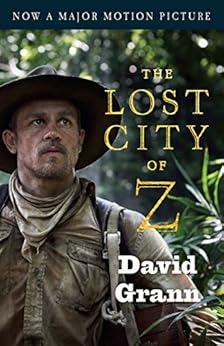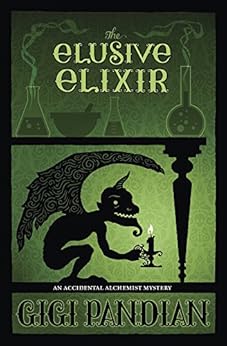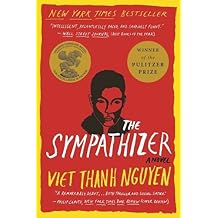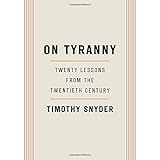Aline's post on word use got me thinking (and what a cliche that is, as if I don't usually think). We all have our pet words and phrases that are the first to pop into our head when we are articulating our ideas in words. To go beyond them requires that we stop, beat them back, and ferret around for a more accurate, interesting, and unique way to say what we want. That takes time and effort, which slows down the conversation.
Words, phrases, and cliches rise and fall in popularity too, and are often an excellent shortcut to shared understanding. A well-chosen word like "squirrel!" saves us a whole lot of words. As Aline said, we writers are no different; we all have phrases and words that become our "go-to" choices, used far too often. Usually we are unaware of the overuse and it's a laborious process to purge the excesses from our writing in later drafts.
One of the challenges in writing is to "show" reactions, emotions, and thoughts through action rather than telling them through such flat phrases as "he felt sad" or "he was angry." Short phrases like "he flushed", "he clenched his fists" are often interspersed with dialogue not only to convey feeling but to serve as a tag. For me, this is where I am most likely to fall back on my own writing tics.
How many times in the course of a chapter would my character roll her eyes or grit her teeth? Far too often, I suspect, so I decided to run a test. I have completed 287 pages of the first draft of my new novel, with about 50 - 60 pages left to go. First drafts are notoriously messy, with not much attention to refinement of language. To keep up the momentum of the story, I write and write without stopping to edit or critique, knowing that I can fix things later.
I don't have a fancy editing tool to track words but you can do some quick and dirty word counting using the Advanced Find feature in MS Word. Armed with this, first I wanted to know how many times I used those innocuous connector words "and","but" and "so". The result suggests I ought to take a second look at my love affair with "and" (2008 times), and be careful with "but" (620), but "so" and I are good (146). However, I also know that, in trying to work around the ands and buts, one risks creating a pedantic, fussy style that is far more distracting than the occasional extra and. So I approach this editing with caution.
I was next curious to know how many times I stuck in those often unnecessary words "very", "really", "just", and "that". "Just" won the race (162!), and "very" clocked in on the high side for a useless word (112), but "really" wasn't bad (27). All will get a critical eye. "That", however, showed up nearly 500 times. Now some of those thats are necessary, but I will be taking a hard look at that word!
Next I looked at overuse of adverbs. I think adverbs have their place, but where they can be replaced with a punchier verb or just turfed out altogether, the few that remain will have more power. I found 821 words ending in "ly", which gives a rough estimate of adverbs. That's about three a page, and each one will get at least a cursory glance. Are there more powerful or precise words? Does the adverb add anything?
As noted above, we all have our favourite ways to convey emotion in a fast moving scene. Shorthand, if you like, without pulling the reader out of the scene or dragging the action down. The eyes are very expressive, and writers often use them to convey whole stories. Eyes darken, flash, light up, widen, narrow, etc. etc. etc. I know I am guilty of overusing this, so I ran a couple of tests. The word "eye" showed up 118 times (sometimes as a verb), but I'm happy to report that the eyes never darkened, flashed, or lit up. They rolled twice, widened three times, and narrowed once. I thought that wasn't too bad, but I will still keep an eye open for misuse of the idea, because I did use the word "look" 207 times. However, I'm happy to report I didn't clench anyone's fists ever.
Other emotions were conveyed through smiles, grins, laughs, frowns, glares, scowls, and so on. Based on their counts, I decided I'd better watch out for frowning and laughing.
Lastly, I couldn't resist counting the swear words in my first draft. I get the occasional reader who wags an admonishing finger at my language. I usually have some salty characters in my books, including cops and journalists, and tempers can run high. I think 33 instances of the F word, 7 of the S word, and only 28 various religion allusions shows remarkable restraint.
All told, it was an interesting and useful exercise. I will be keeping an eye open for favourite words that I need to rein in as I go through rewrites.
Words, phrases, and cliches rise and fall in popularity too, and are often an excellent shortcut to shared understanding. A well-chosen word like "squirrel!" saves us a whole lot of words. As Aline said, we writers are no different; we all have phrases and words that become our "go-to" choices, used far too often. Usually we are unaware of the overuse and it's a laborious process to purge the excesses from our writing in later drafts.
One of the challenges in writing is to "show" reactions, emotions, and thoughts through action rather than telling them through such flat phrases as "he felt sad" or "he was angry." Short phrases like "he flushed", "he clenched his fists" are often interspersed with dialogue not only to convey feeling but to serve as a tag. For me, this is where I am most likely to fall back on my own writing tics.
How many times in the course of a chapter would my character roll her eyes or grit her teeth? Far too often, I suspect, so I decided to run a test. I have completed 287 pages of the first draft of my new novel, with about 50 - 60 pages left to go. First drafts are notoriously messy, with not much attention to refinement of language. To keep up the momentum of the story, I write and write without stopping to edit or critique, knowing that I can fix things later.
I don't have a fancy editing tool to track words but you can do some quick and dirty word counting using the Advanced Find feature in MS Word. Armed with this, first I wanted to know how many times I used those innocuous connector words "and","but" and "so". The result suggests I ought to take a second look at my love affair with "and" (2008 times), and be careful with "but" (620), but "so" and I are good (146). However, I also know that, in trying to work around the ands and buts, one risks creating a pedantic, fussy style that is far more distracting than the occasional extra and. So I approach this editing with caution.
I was next curious to know how many times I stuck in those often unnecessary words "very", "really", "just", and "that". "Just" won the race (162!), and "very" clocked in on the high side for a useless word (112), but "really" wasn't bad (27). All will get a critical eye. "That", however, showed up nearly 500 times. Now some of those thats are necessary, but I will be taking a hard look at that word!
Next I looked at overuse of adverbs. I think adverbs have their place, but where they can be replaced with a punchier verb or just turfed out altogether, the few that remain will have more power. I found 821 words ending in "ly", which gives a rough estimate of adverbs. That's about three a page, and each one will get at least a cursory glance. Are there more powerful or precise words? Does the adverb add anything?
As noted above, we all have our favourite ways to convey emotion in a fast moving scene. Shorthand, if you like, without pulling the reader out of the scene or dragging the action down. The eyes are very expressive, and writers often use them to convey whole stories. Eyes darken, flash, light up, widen, narrow, etc. etc. etc. I know I am guilty of overusing this, so I ran a couple of tests. The word "eye" showed up 118 times (sometimes as a verb), but I'm happy to report that the eyes never darkened, flashed, or lit up. They rolled twice, widened three times, and narrowed once. I thought that wasn't too bad, but I will still keep an eye open for misuse of the idea, because I did use the word "look" 207 times. However, I'm happy to report I didn't clench anyone's fists ever.
Other emotions were conveyed through smiles, grins, laughs, frowns, glares, scowls, and so on. Based on their counts, I decided I'd better watch out for frowning and laughing.
Lastly, I couldn't resist counting the swear words in my first draft. I get the occasional reader who wags an admonishing finger at my language. I usually have some salty characters in my books, including cops and journalists, and tempers can run high. I think 33 instances of the F word, 7 of the S word, and only 28 various religion allusions shows remarkable restraint.
All told, it was an interesting and useful exercise. I will be keeping an eye open for favourite words that I need to rein in as I go through rewrites.




















![The Break by [Vermette, Katherena]](https://images-na.ssl-images-amazon.com/images/I/51hwcY4WRHL.jpg)




